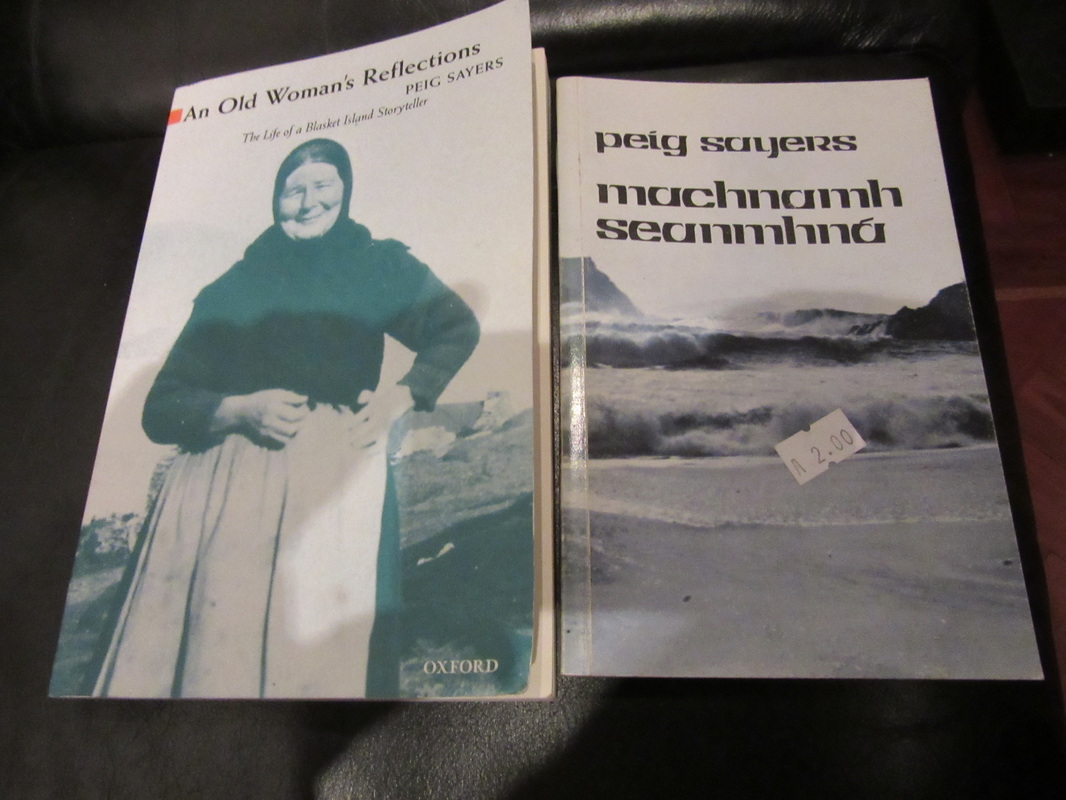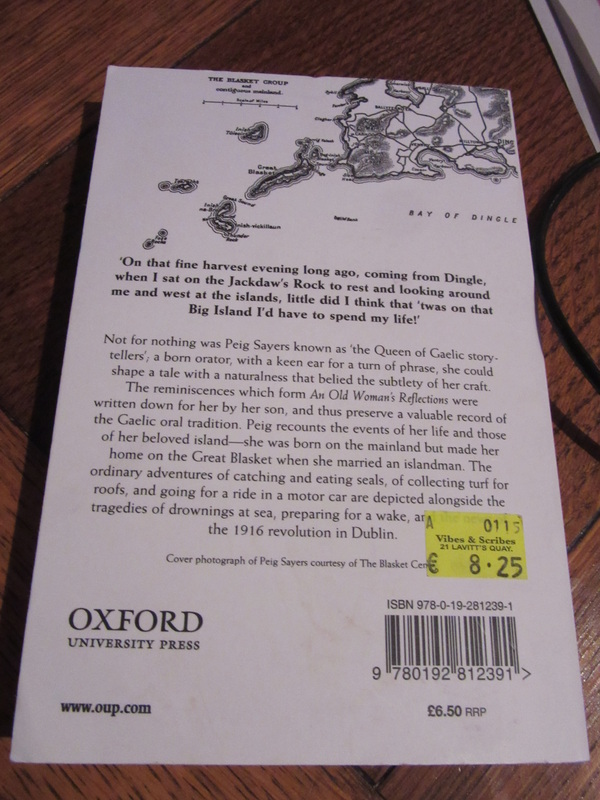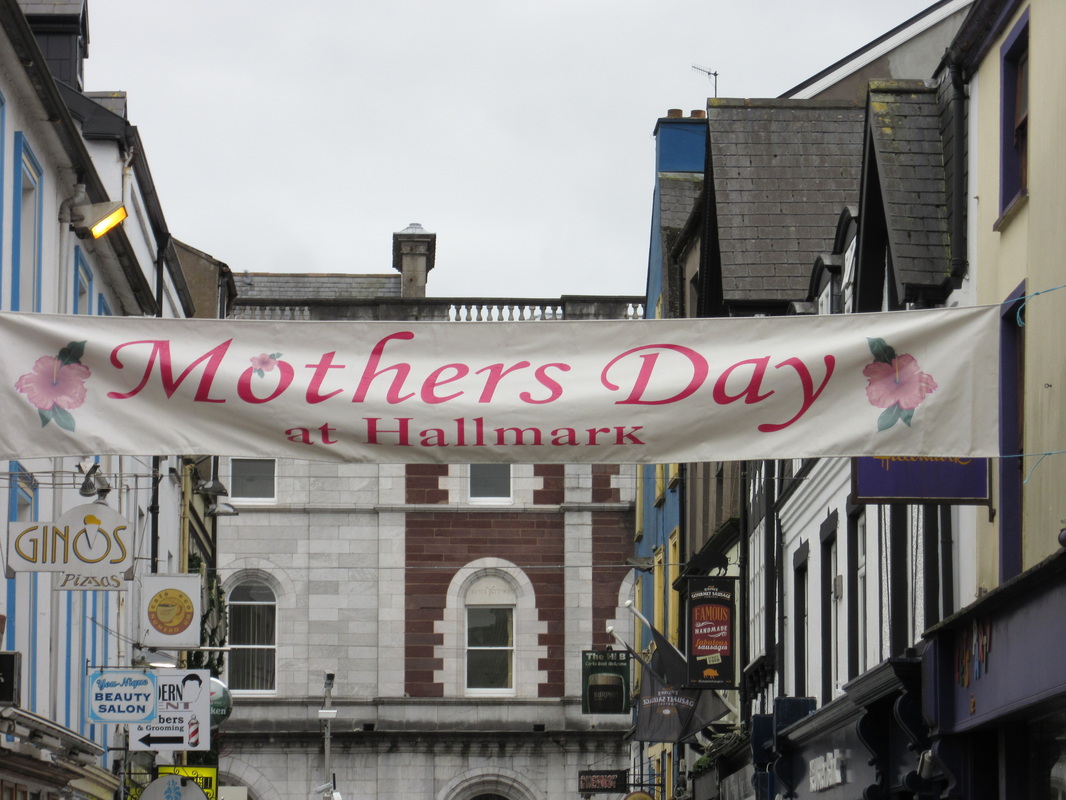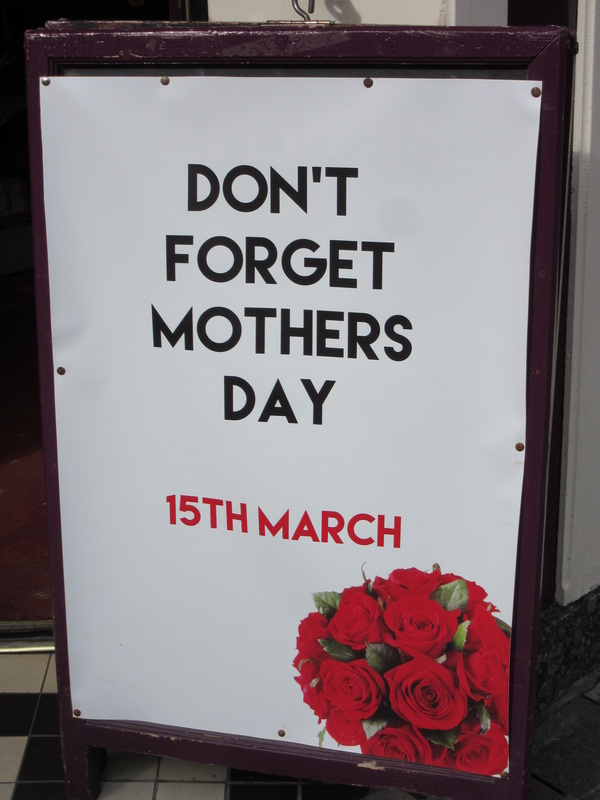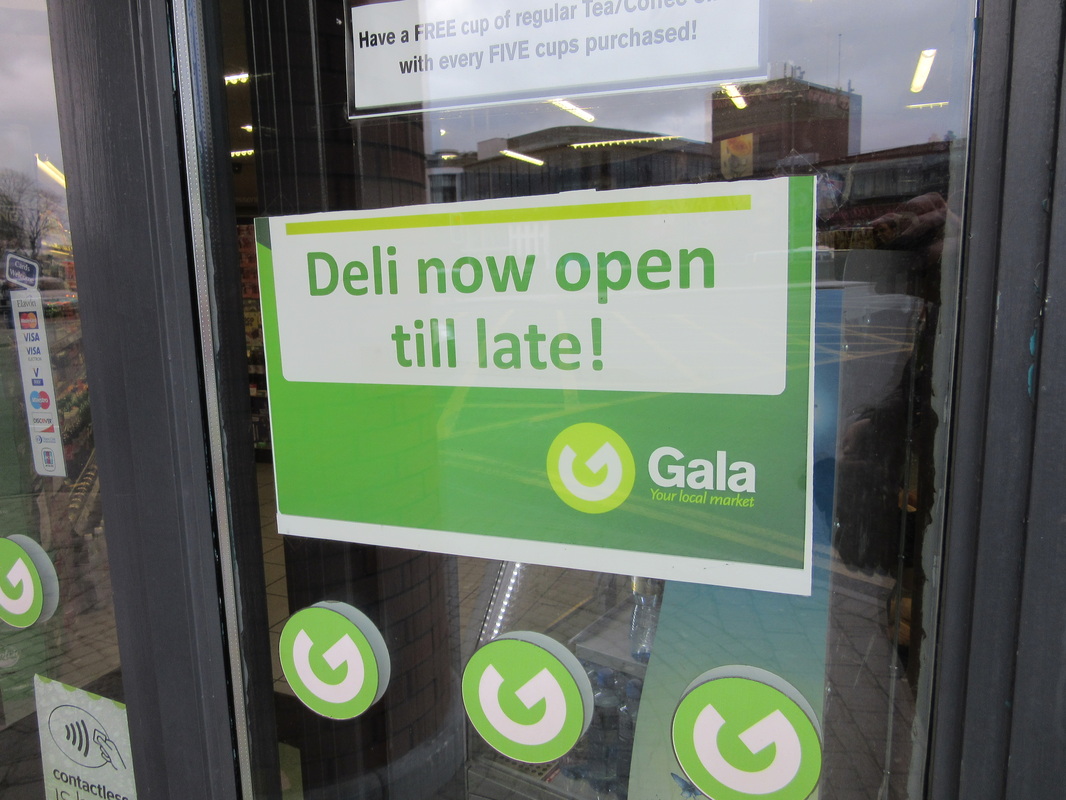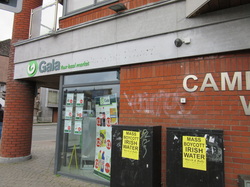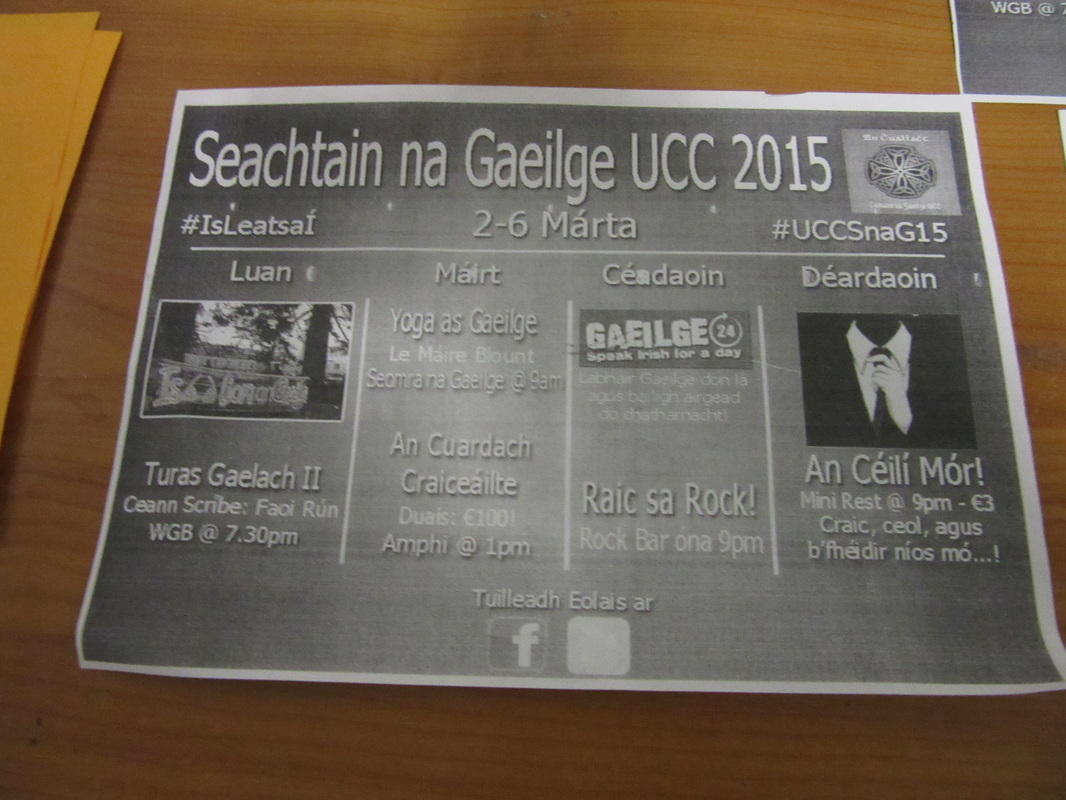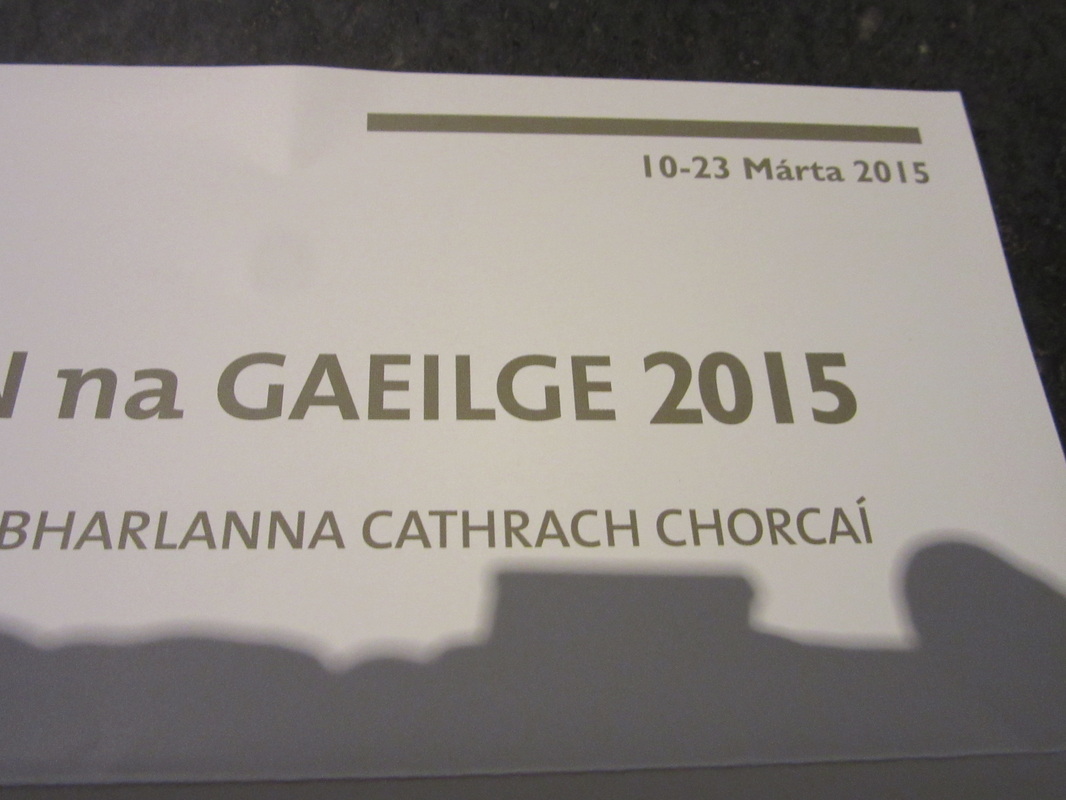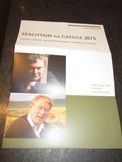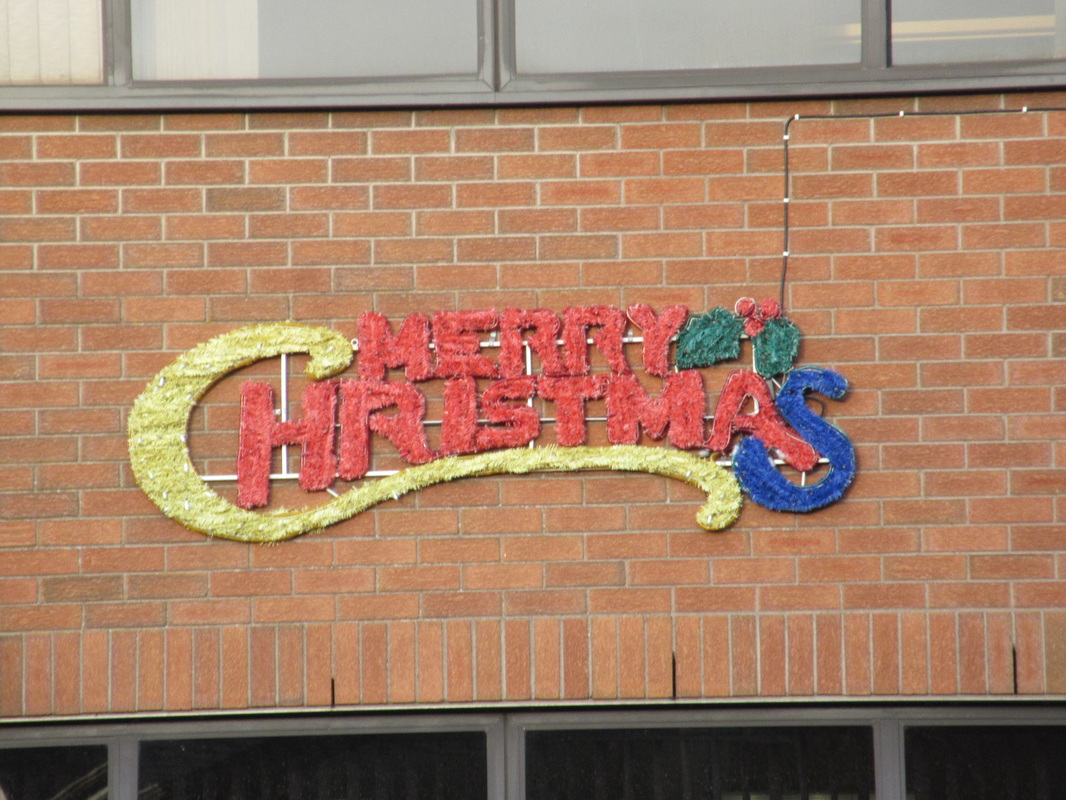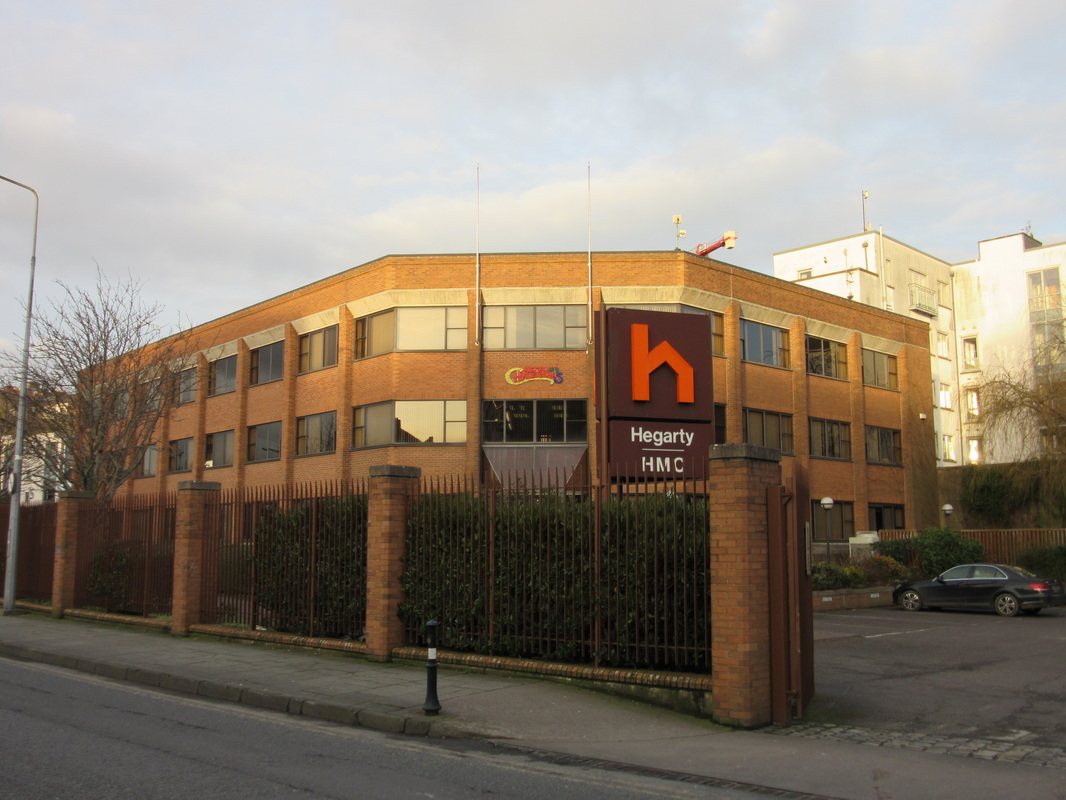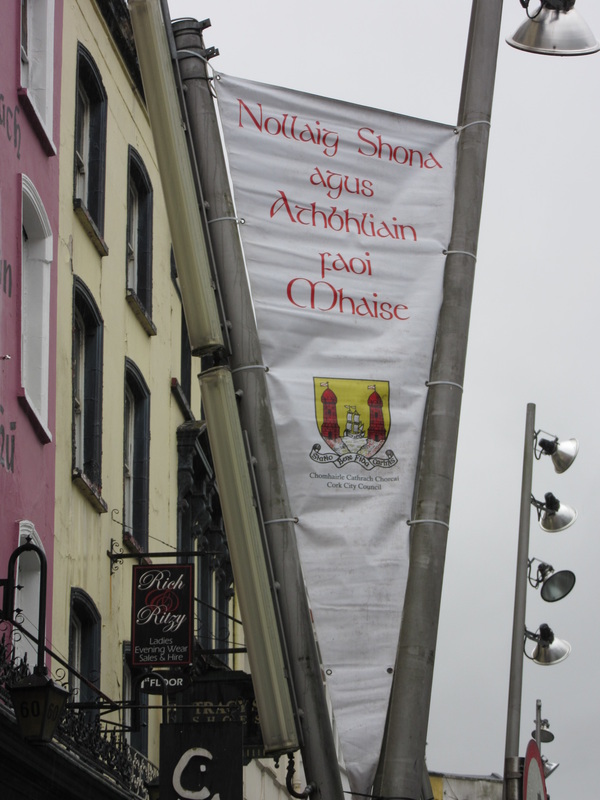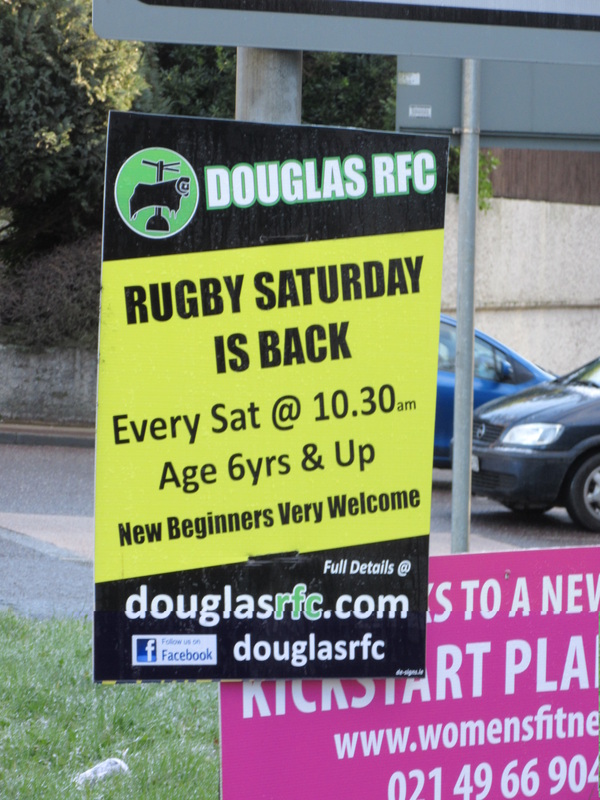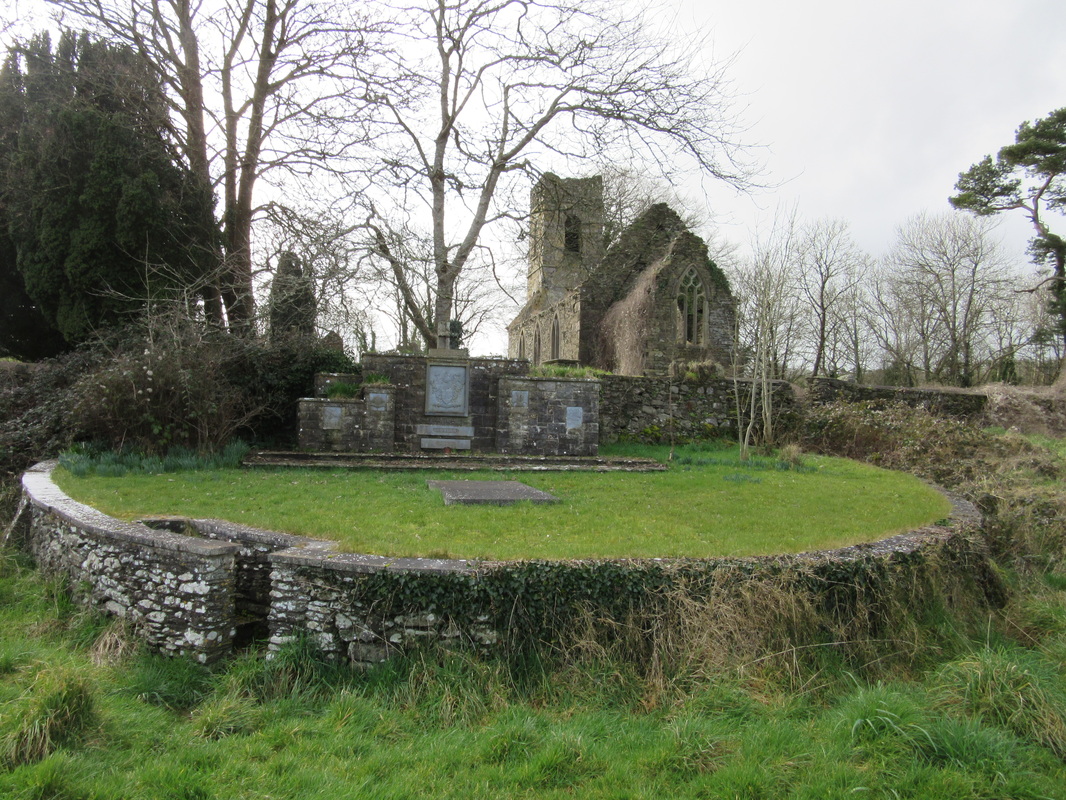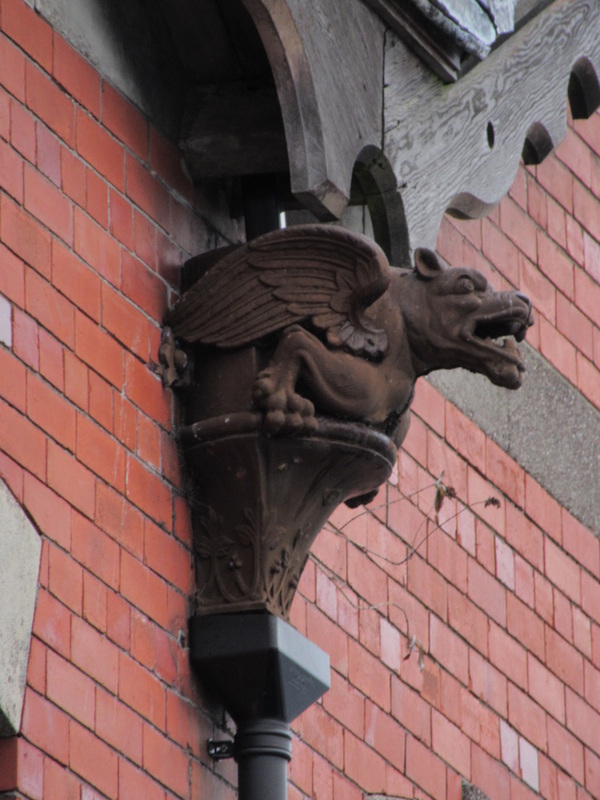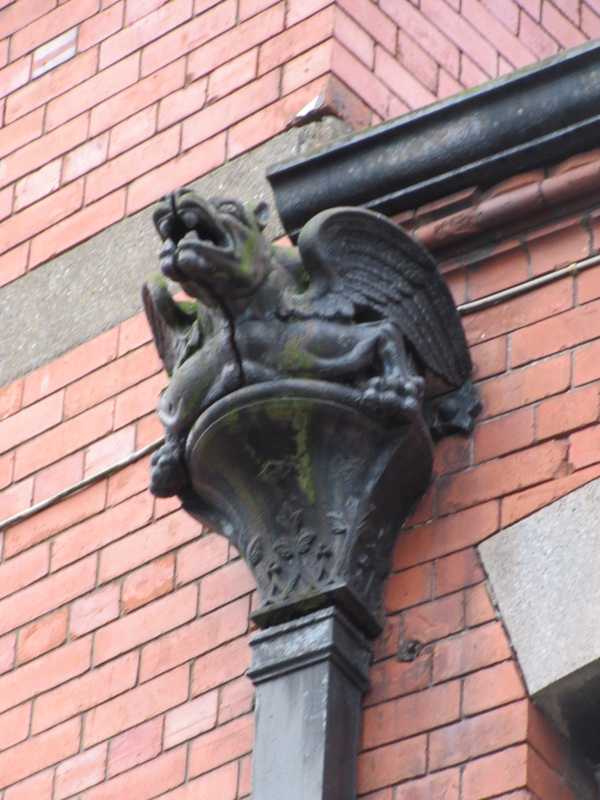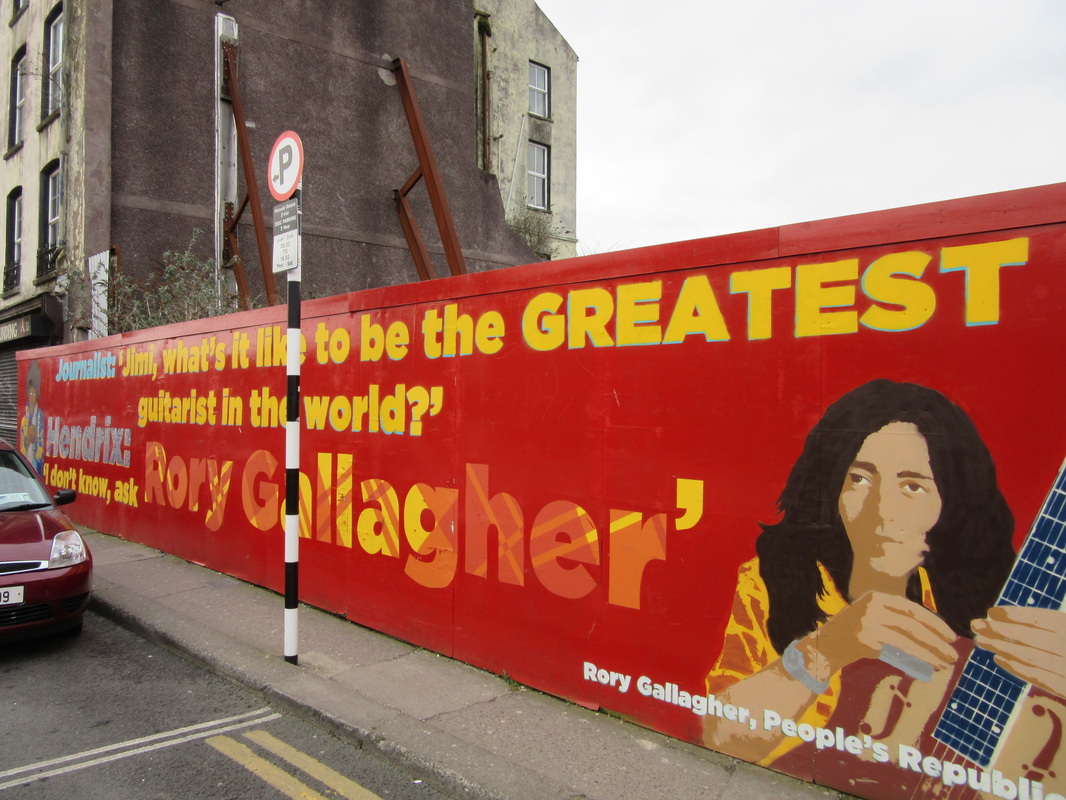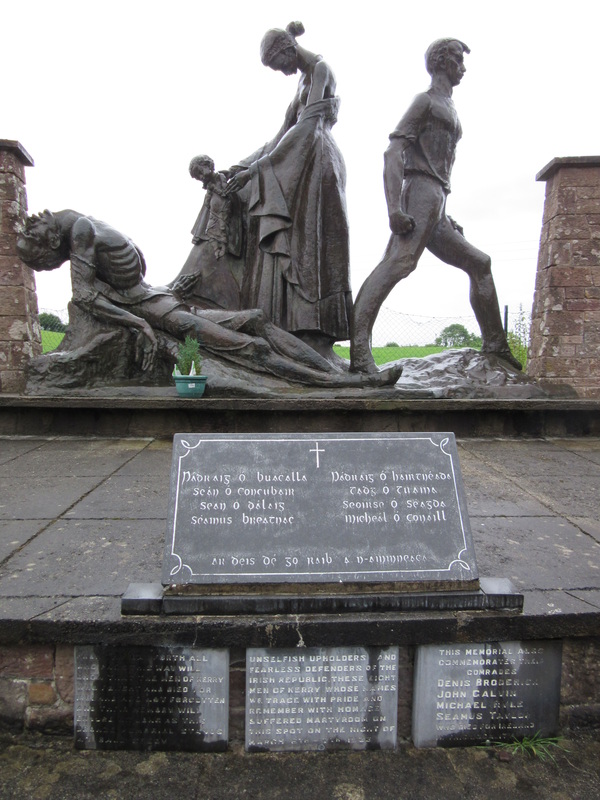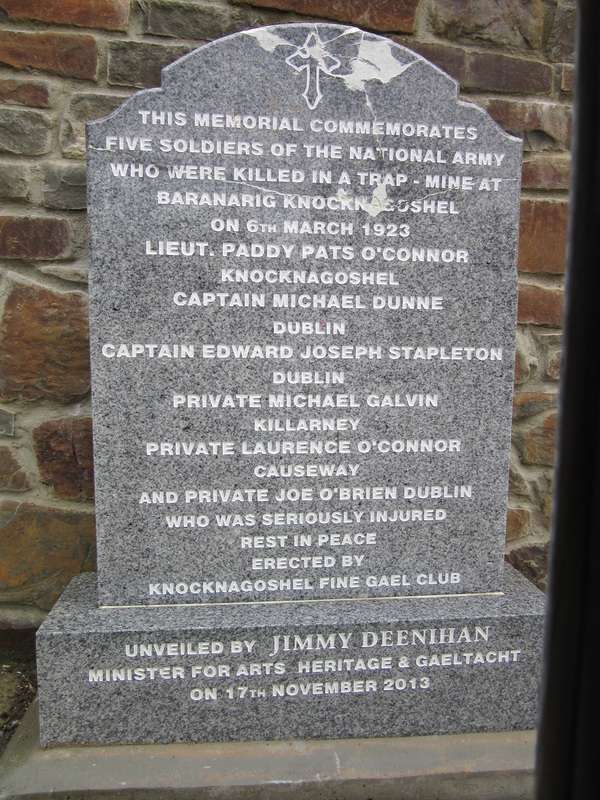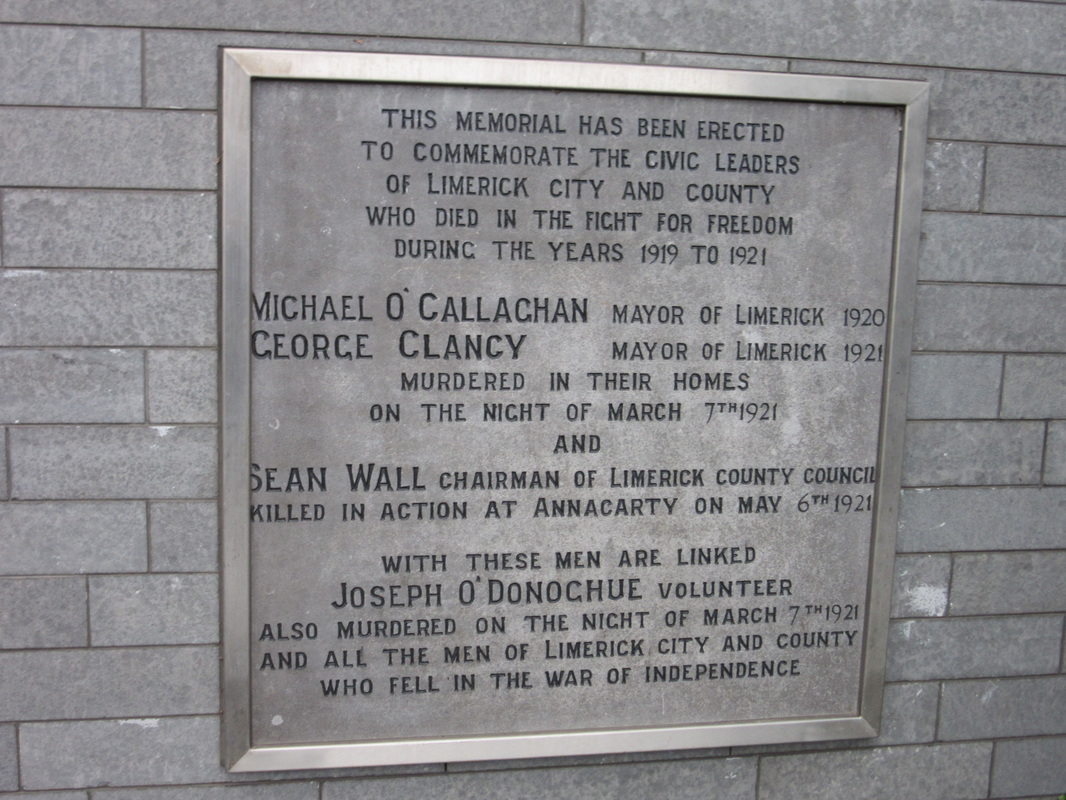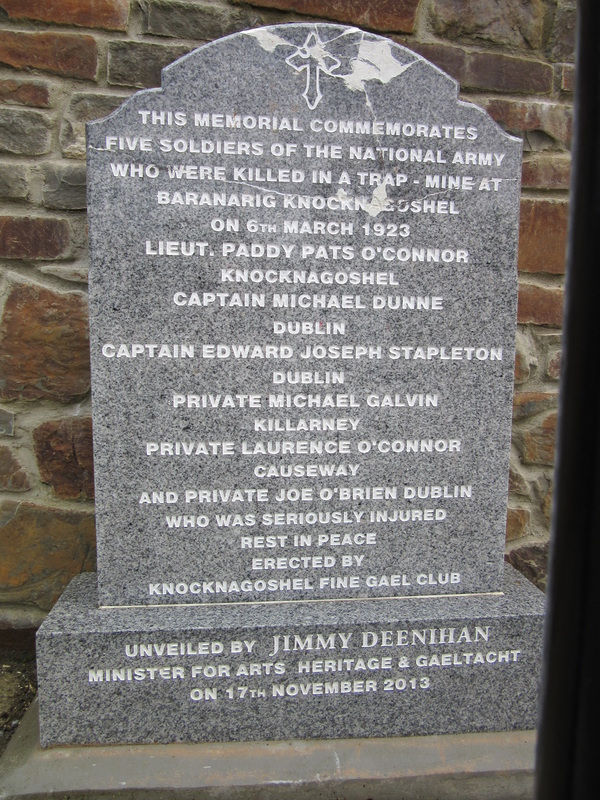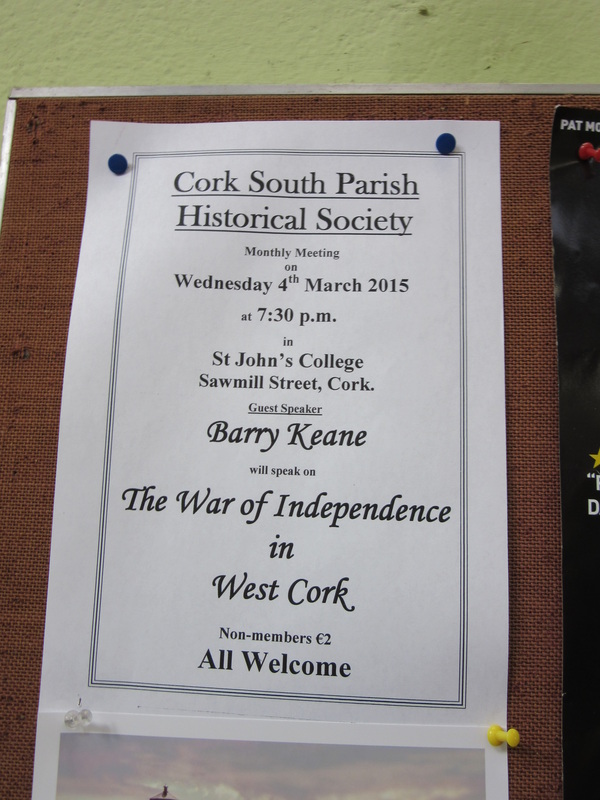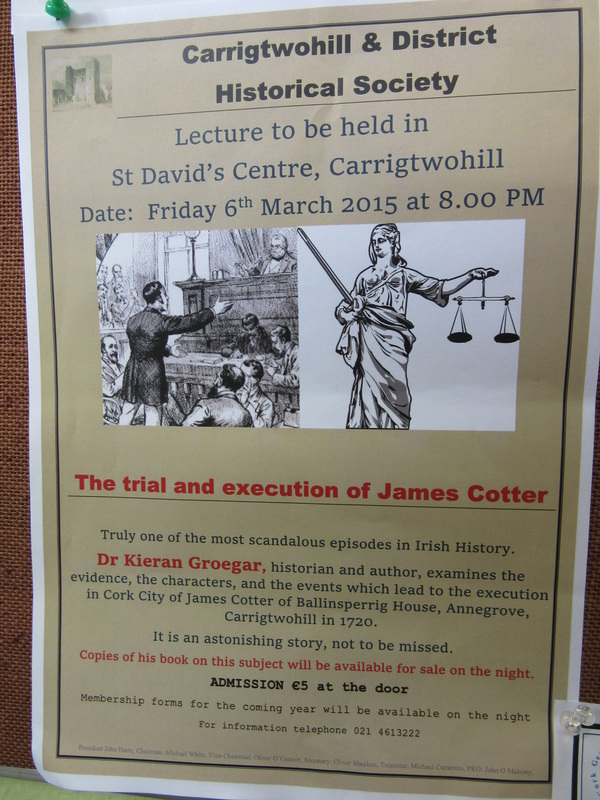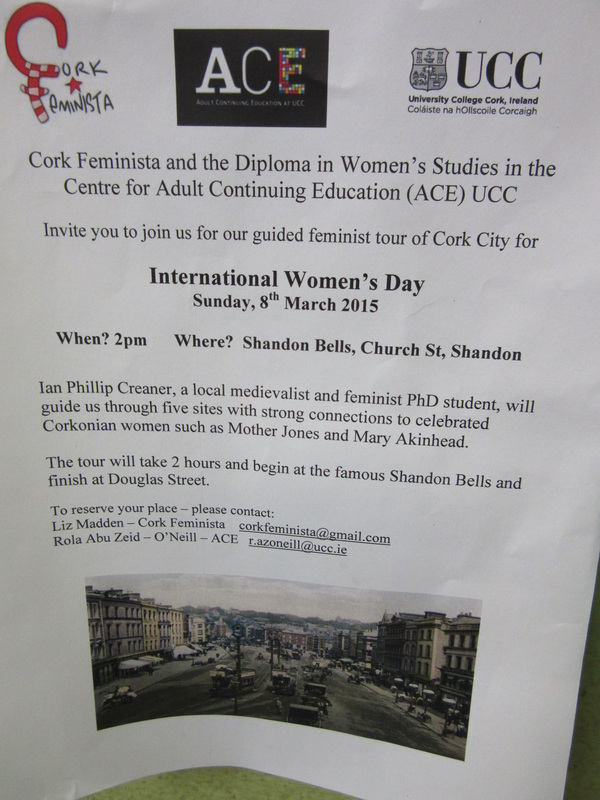| I dropped back from Honours Irish to Pass Irish a few months before my Leaving Certificate. I don’t think that we had finished Peig by that time. It took over thirty years for me to get around to finishing it. And only another few weeks (shorter than Seachtain na Gaeilge) for me to finish a second Peig Sayers’ book. In the final chapter, I discovered another suggested translation for the quote on the wall of the coffee shop on Pope’s Quay. In the introduction, W. R. Rodgers comments on the effect of radio and picture-screens on oral tradition. I wonder what he’d make of today when many prefer to communicate with their phone than with another human – just check the next time you are on a bus……. Is that person next to you interested in living with you in each other’s shelter? “But I have this much to say, that I had good neighbours. We helped each other and lived in the shelter of each other. Everything that was coming dark upon us, we would disclose it to each other, and that would give us consolation of mind. Friendship was the fastest root in our hearts.” | “Ach tá an méid seo agam le rá, go raibh comharsain mhaite agam. Chuidiomar féin le chéile agus ar scáth a chéile a mhaireamar. Gach rud a bhíodh ag teacht dorcha orainn nochtaímis dá chéile é agus chuireadh sin sólás aigne orainn. Ba í an charthanacht an phréamh ba dhaighne a bhí inár gcroí.” |
“But the story-tellers are a vanishing race for they have lost their audience and the flow of words comes thin and seldom now. The radio has taken away their voices just as the printed page has taken away their memories, and the pictures that once were seen in a glowing peat-fire are seen more readily on the picture-screen today. The world has widened and the imagination of man has dwindled. For it is good communications, not evil ones, that corrupt good manners and local mores, and the better the roads that lead into the glen, the quicker the old language, the old customs, the old stories and poetry, run out of it.”
W R Rodgers, 1962
